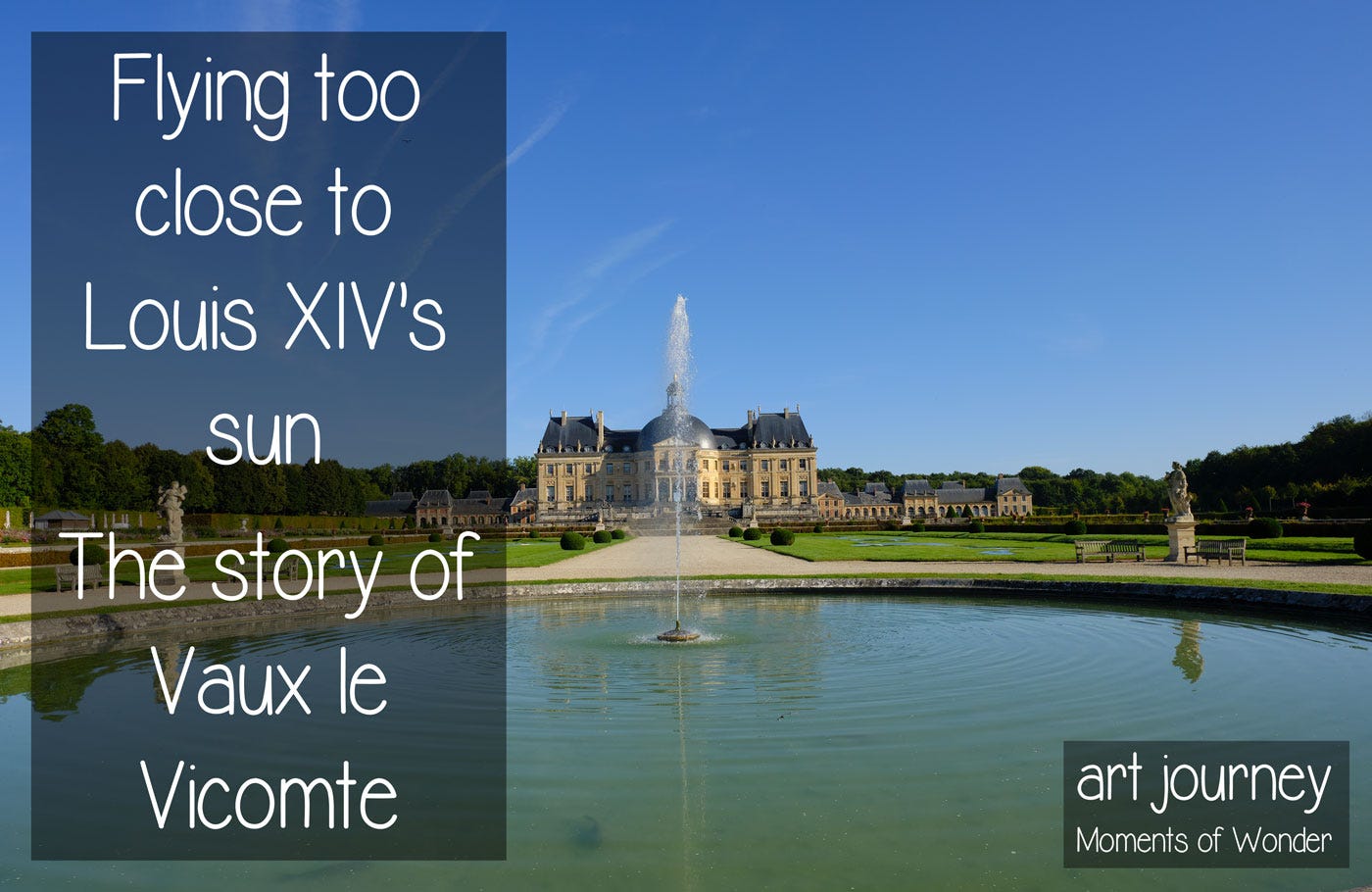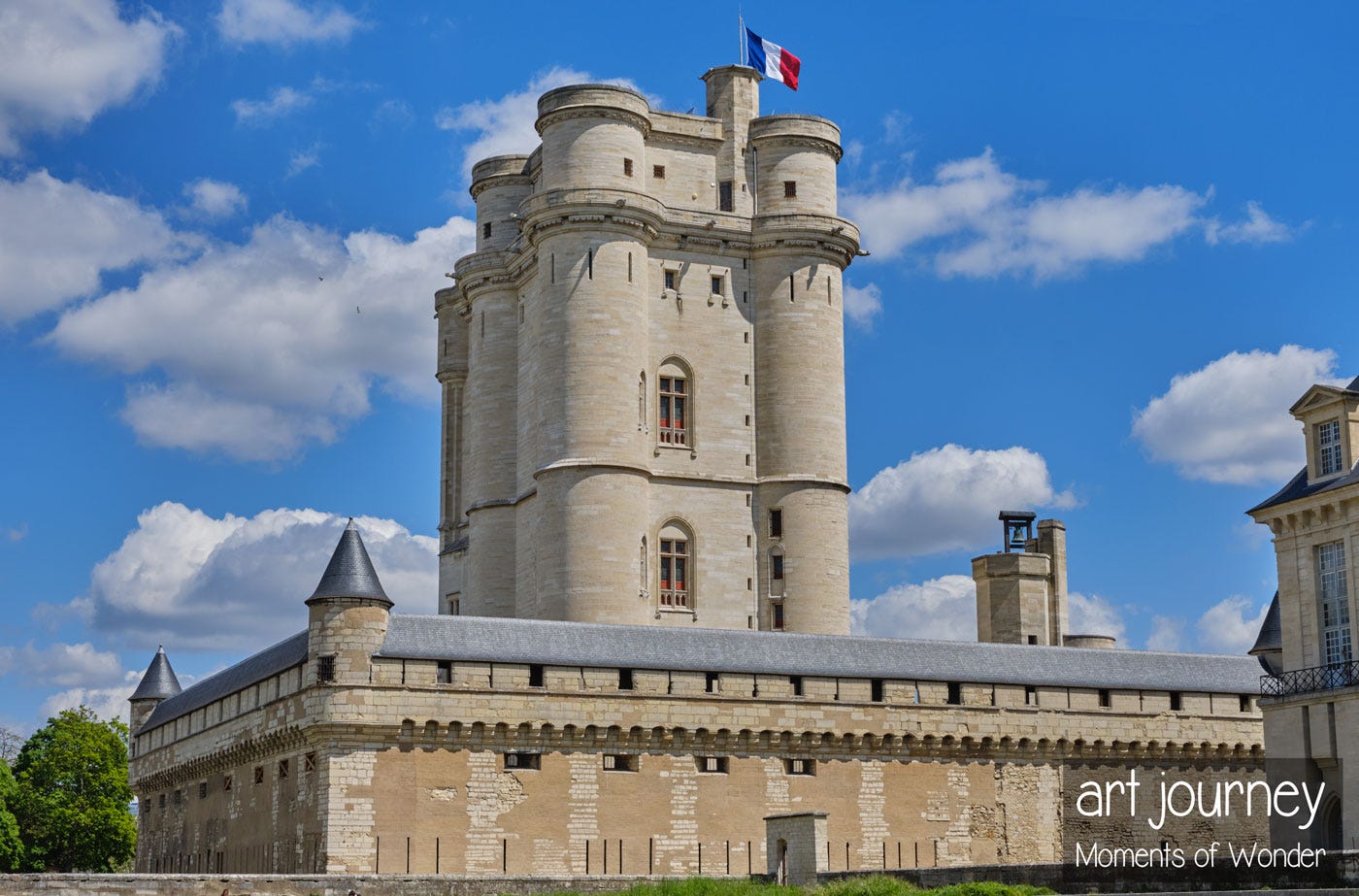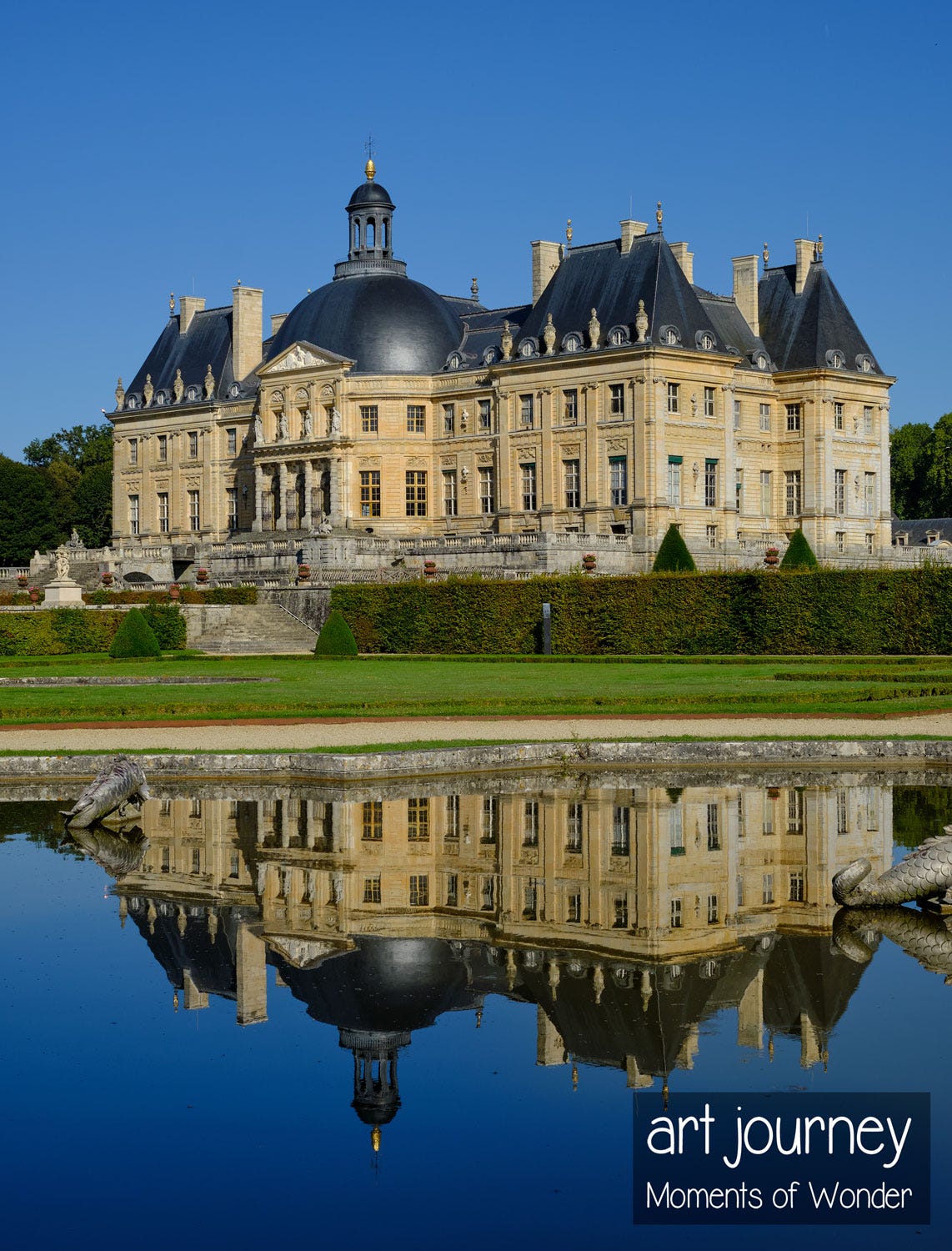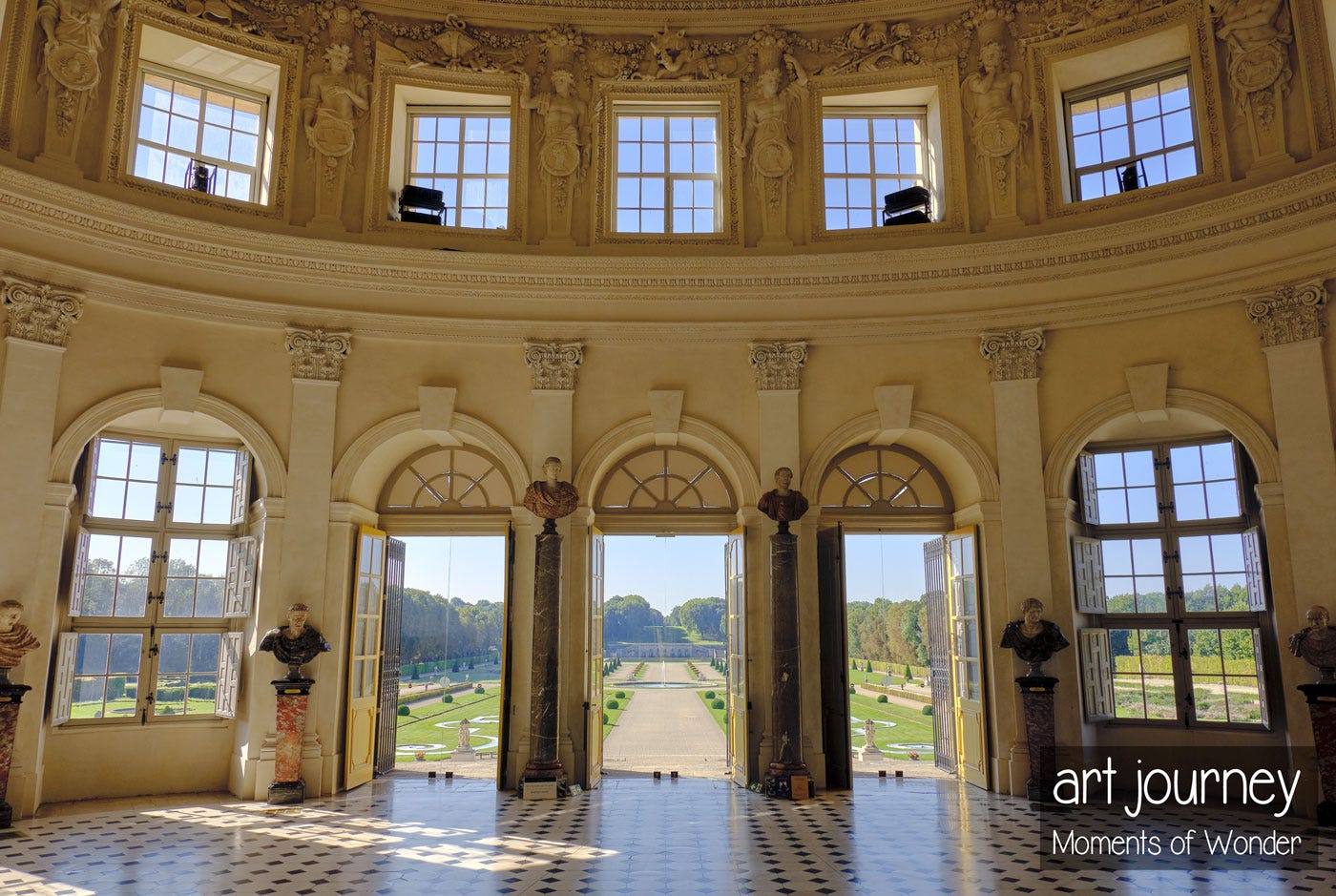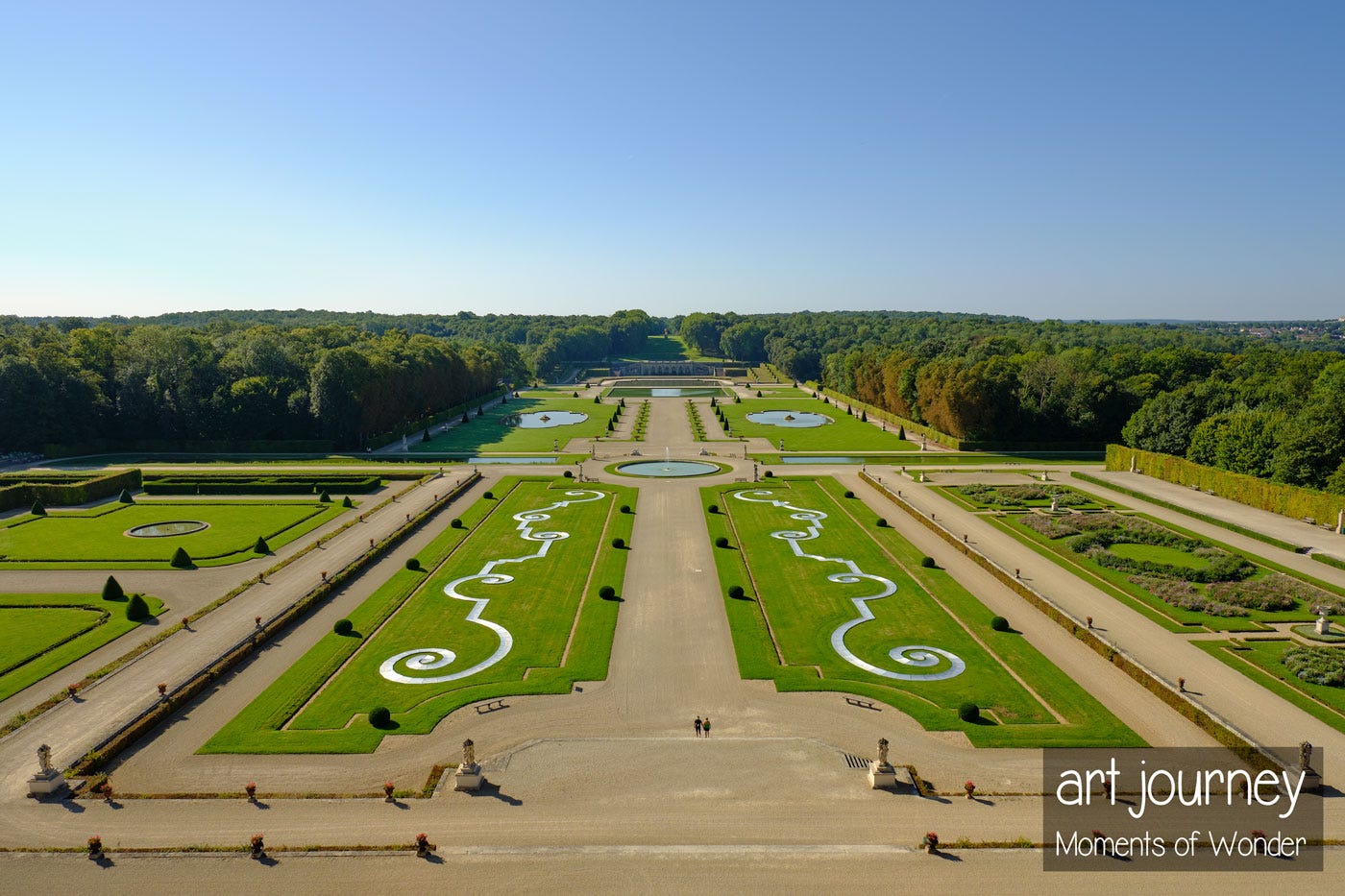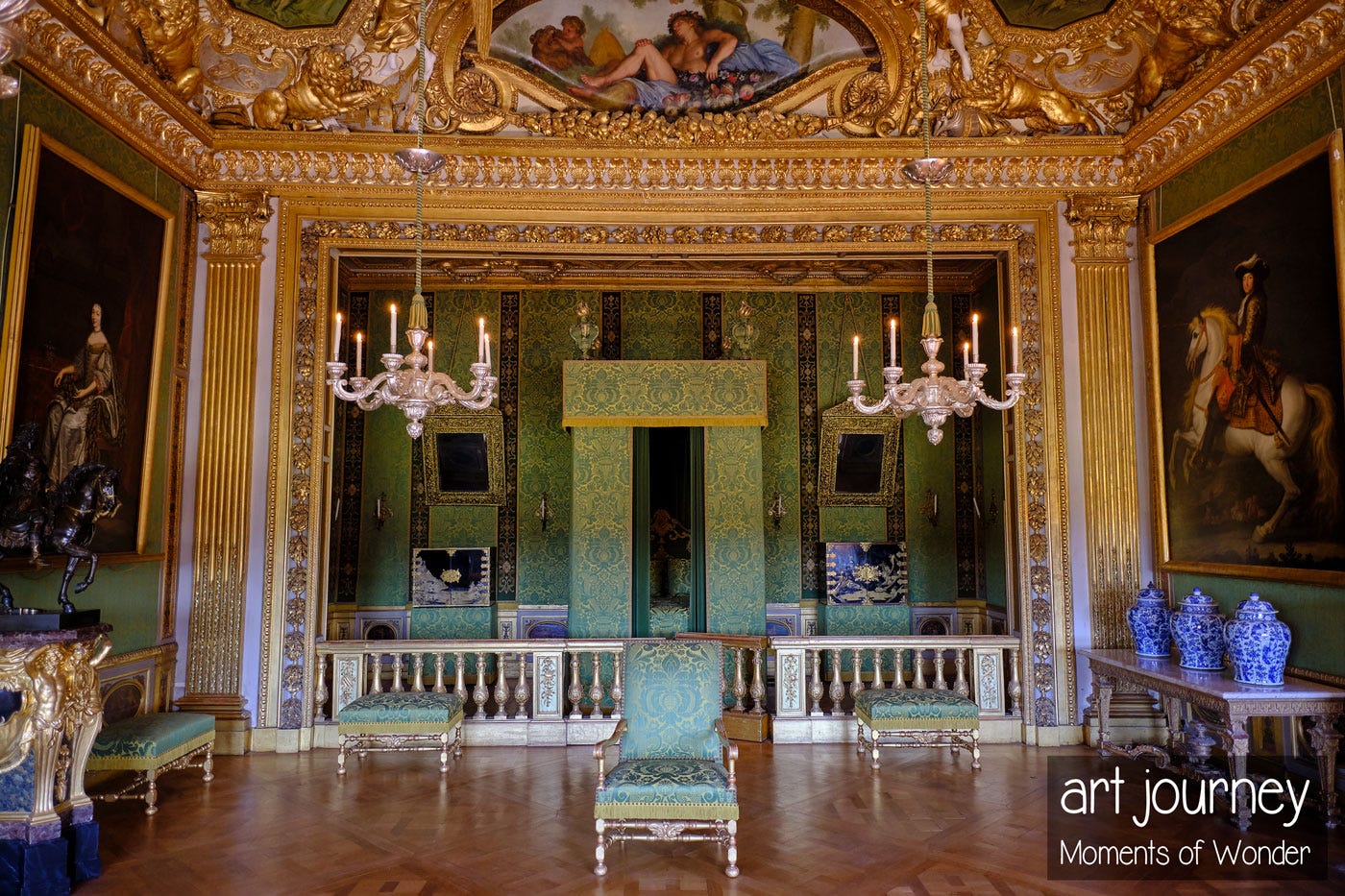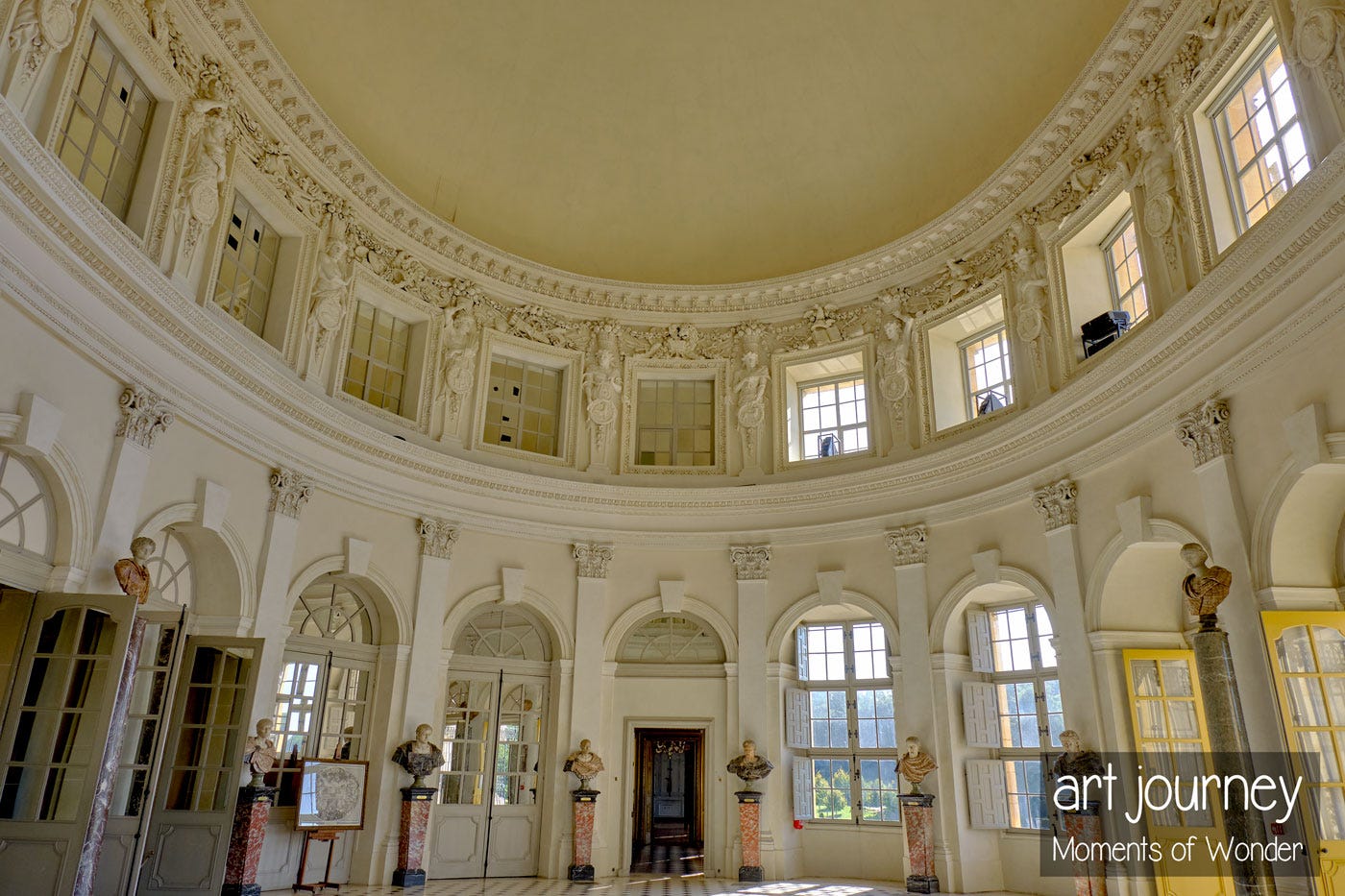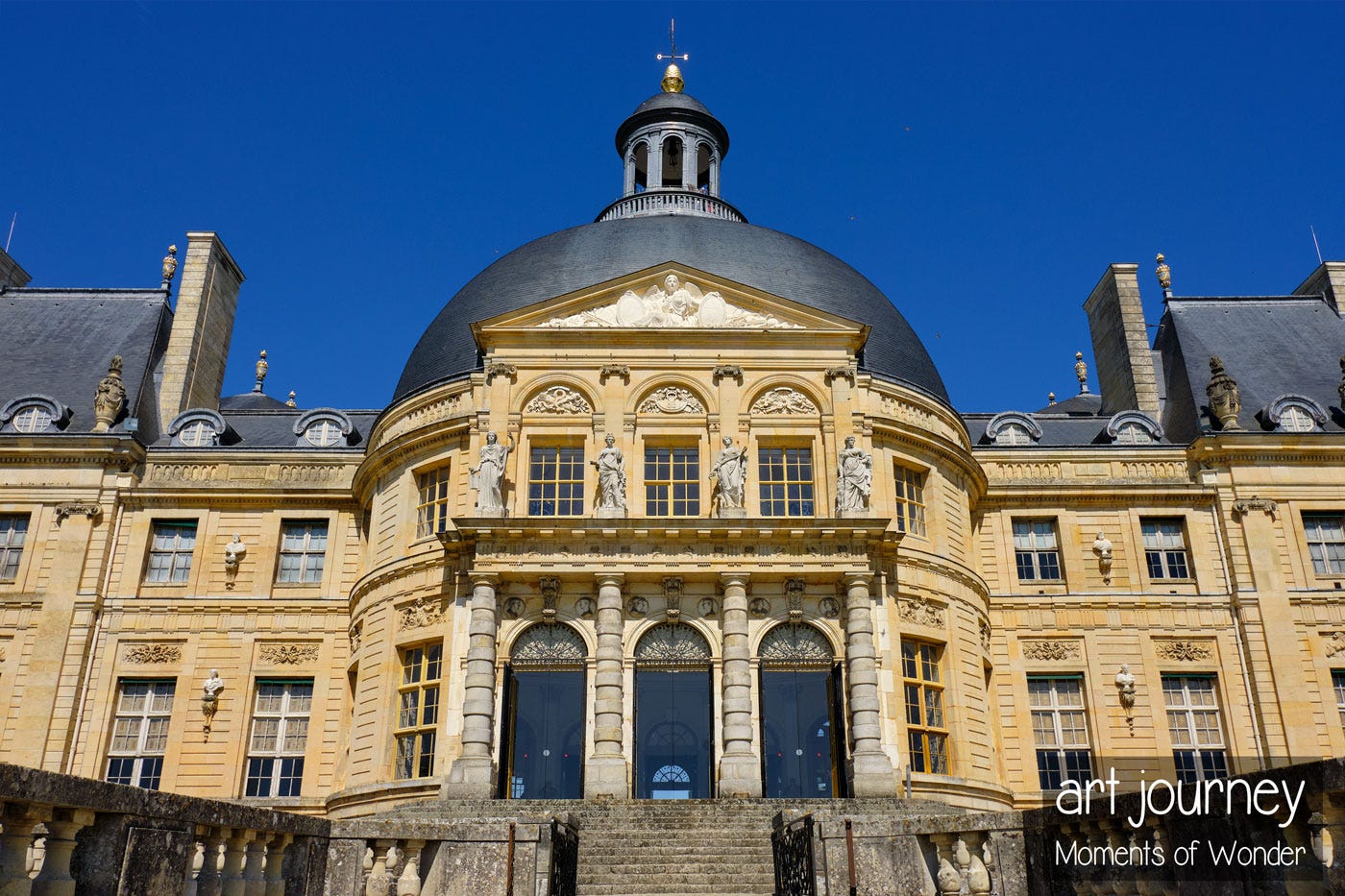In Greek myth, Icarus flew toward the sun with wings made of feathers held by wax. The sun's rays melted the wax, causing Icarus's downfall.
This tale of crushed ambition is precisely what happened in France in the 1660s.
Climb onboard the time machine, and let's journey through French history:
For over 1,000 years, French Kings had to compromise with other nobles, who sometimes were wealthier than the King.
There were times when the Royal domain was nothing more than Paris' region.
Toward absolute monarchy
Over the centuries, the arc of history bent toward absolute monarchy, where a King had no one to answer to aside from God.
Louis XIII and his prime minister set in motion absolutism by trying to annihilate the nobility's power.
His son Louis XIV became King when he was five years old, meaning it was the last chance for nobles to fight back.
At the same time, in England, in the 1640s, a similar question was asked: Should a King share power or have absolute power?
The solution was a civil war, beheading Charles I, to eventually return to a monarchy, but that shared power with a Parliament.
In France, Louis was too young, so effective power was in the hands of his Prime Minister, Mazarin, who doubled as a father figure.
Most of Louis XIV's childhood was spent during a civil war, a quasi-revolution in which the Parliaments and the nobility rebelled, forcing young Louis to flee Paris.
The chaos ended when Louis XIV was crowned at the age of 16. But he was only a paper King, as Mazarin was in charge.
Louis XIV becomes the sun

The image above is the original sketch of a fifteen-year-old Louis, who had not yet been crowned, dressed as the sun for an equestrian parade. That was the first step in comparing him to the sun god Apollo.
Later, he wrote—translated for you—what he meant:
[the sun] always appears calm, by this constant and invariable course, from which he never deviates or turns away, is assuredly the most vivid and the most beautiful image of a great monarch.
Wearing a shiny costume doesn't make one a Sun-King. First, the young man had to take power.
The face of the theater is changing
These words are not poetic license but Louis' own. The photo above is of Vincennes castle, the tallest European royal dungeon.
The wing built during Louis XIV's reign, where absolute monarchy was born, is on the side of the image.
Hours after Mazarin died there, Louis called his ministers.
The King was only 22 years old, and everyone present assumed he would keep himself occupied chasing skirts and that one of them would be named Prime Minister.
Let me translate what Louis XIV said:
Gentlemen, I had you assembled here to tell you that I now intend to govern my State by myself.
The face of the theatre is changing.
You know my wishes; it is now up to you, Gentlemen, to carry them out.
He also insisted that nothing, not even a passport, would be signed without his authorization.
Nicolas Fouquet, the Finance Minister, had been on Louis' side during the troubles and convinced himself he still had a chance to become Prime Minister.
While young Louis XIV tried to stamp out his power, Fouquet built a fantastic castle, Vaux le Vicomte.
Vaux le Vicomte castle
Remember these names: Louis le Vau—architect—Charles le Brun—painter—, and André le Nôtre—landscape architect.
These three went on to build Versailles, so I am not exaggerating when I say that Vaux is the 'Versailles' prototype,’ because it is.
Look again at the photo of Vincennes' medieval dungeon—not a prison but a very comfortable royal residence. Its basic design is a square with towers at each corner surrounded by a moat.
Vaux repeats the traditional design, except it completely reinvents it. With its large windows, it has no defensive use. Instead, it is one of the first castles purely designed for leisure.
One could say it is like a theatre stage.
Six months after Louis XIV declared that the face of the theatre was changing, Nicolas Fouquet invited the King and the Court for an evening of festivities.
At six in the evening, Fouquet was the King of France; at two in the morning, he was nobody
The photo above shows the theatre effect. Climb the stairs, and the castle becomes transparent, revealing the immense gardens on the other side.
This was the view offered to young Louis XIV and his court one evening in the summer of 1661.
When the fireworks lit the starry sky, Fouquet's fate was sealed. The legend goes that “at six in the evening Fouquet was the King of France; at two in the morning, he was nobody.”
A few weeks after that fateful party, Fouquet was arrested and accused of crimes against the King, and stealing from the state coffers.
Fouquet was sentenced to banishment at trial, but Louis did something unusual. He overturned the sentence to make it harsher: life in prison.
Fouquet died in jail nearly twenty years later.
Flying too close to the Sun King
Beyond the legend of a castle that served its purpose only one evening and caused Fouquet's precipitous downfall, the truth is far simpler.
The decision to arrest Fouquet was taken before that fateful evening.
Young Louis was susceptible to manipulation by ambitious ministers who whispered in his ear tales of Fouquet's misdeeds, actual or not.
With the benefit of insight, knowing what the rest of Louis XIV's reign would look like, it is inevitable that showing off a more magnificent castle did not help.
However, the reason for Fouquet's downfall was to announce that it was the birth of absolute power.
Remember the English crisis, the beheading of Charles I, and the fact that English monarchs had to deal with a Parliament from now on.
Young Louis was going in the opposite direction, compromising with no one, so he had to ensure that ministers and nobles understood he meant business. Cross him, and it will be life in prison.
Fouquet did not understand that the winds had turned and burnt his wings by flying too close to the nascent Sun-King.
It was the first of several injustices, but such is the cost of absolutism.
Vaux le Vicomte castle dazzled for one night, then entered a long slumber. It miraculously survived time and the French Revolution and is still privately owned.
Contrary to its bigger brother, Versailles Castle, there is no direct train access, but it is only one hour from Paris.
This means Vaux is not crowded, more intimate, and friendlier to enjoy. One can even ask for a gourmet picnic basket.
To take the photos needed for this story, I spent a whole day at Vaux, enjoying the incredible views and the ice cream reward at the end of a hot summer day.
It was a Moment of Wonder, and I hope this story was for you.
Notes
Louis XIV declaration at Vincennes, 9 March 1661, Louis-Henri de Loménie, comte de Brienne Mémoires de Louis-Henri de Loménie, comte de Brienne, dit le Jeune Brienne. T.3. - That I translated and edited into English.
Mémoires de Louis XIV, le métier de roi, présentés et annotés par Jean Longnon, “Mémoires pour l’année 1662”, deuxième section, Paris, Tallandier, 2001, p. 135-136 - That I translated and edited into English.
https://gallica.bnf.fr/ark:/12148/btv1b52502200s.item
https://artjourneyparis.com/versailles-palace-private-tour.html





